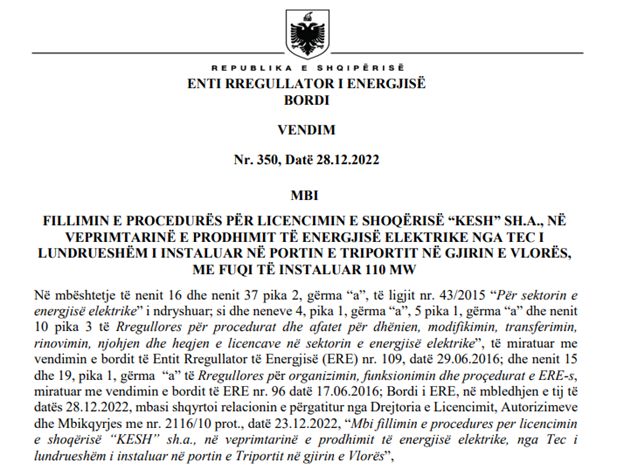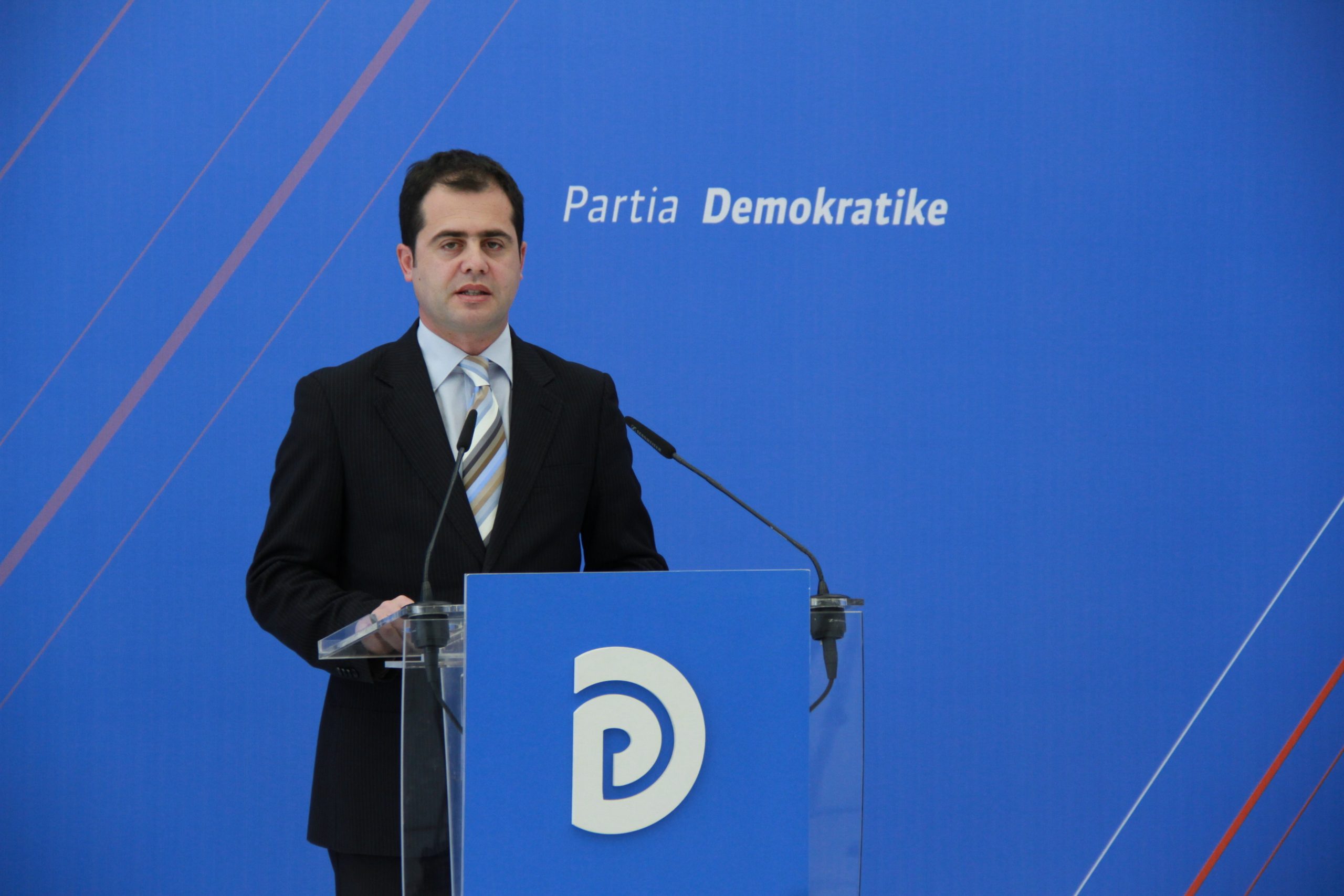On January 1, the production of electricity from the two floating power plants in Vlora should have started, but the ships that cost Albania 336 million euros have not yet produced a single megawatt of electricity. Energy Minister Belinda Balluku says that the tools are ready to be put to work, but the generators will be turned on when necessary. A Faktoje verification shows that the generating assets are not ready to be put into operation as they have not been licensed by the Energy Regulatory Authority.
Esmeralda Topi
“On January 1, we will start increasing the capacity with 114 megawatts, which are the two electricity production ships.” – declared on September 16, 2022, the Minister of Infrastructure and Energy Belinda Balluku, referring to the commissioning of two floating production vessels of energy at the Triport of Vlora.
With the year 2023 approaching, Balluku gave us a heads up saying that the ships would go into production during the months of January-February.
“We will continue during the month of January and during the month of February to put into production the two electricity producing ships that are already stationed at Triport.” – said Balluku on December 13.
The two floating power plants were leased for a period of two years by the Albanian Power Corporation (KESH) against a hefty bill of 336 million euros. The main purpose of the arrival of the two ships to the shores of the Ionian Sea was to fulfill the country’s need for energy, in the conditions of a global energy crisis. But even though they have been anchored in the Triport of Vlora for almost four months, the two floating power plants have not been put into operation.
“We already have two generating units that are ready for production, but since the cascade is in optimal parameters today, it is not the moment to turn them on. But of course they will start to be used at the earliest moment that we will need it.” – Balluku argued as she took stock of the year we left behind and this year’s objectives.
But a verification by Faktoje shows that the ships are not ready to turn on the generators, since the Energy Regulatory Authority has not yet licensed KESH for the production of energy from floating vessels. According to a decision dated December 28, 2022, the ERE board has started the licensing procedure, but has not yet finalized it due to some deficiencies in the documentation that KESH must submit to the regulator.

Screenshot from decision no. 350, Date 28.12.2022
The photo above, taken almost two weeks ago in Vlora, shows the moment of the transportation of the 250 MWA Transformer, which will serve to start the ship’s generators.
“Balluku did not tell the truth when she said that we did not put them to work because we have the cascade at optimal levels. Indeed, the cascade is at optimal levels, but they have not been put into operation, because dredging was finished two days ago and the generators are still in Triport. The generators are not working, because they have not been connected and it takes four months to be put into operation,” argues engineer Klodian Gradeci, who previously ran important enterprises in the energy sector in the country, for Faktoje.
But this is not the only problem. Experts raise as a primary concern the cost of energy production from ships, which according to them makes it unprofitable to turn on generators with fuel oil.
“The price of fuel oil on the stock exchange is about 1.2 Euros and 1 megawatt of energy requires about 1.6 barrels of fuel oil or about 250 liters. Both ships will produce on average 100MWh which will consume 100MWh x (250 L/M x1.2 Euro) x 24h x 330 days = 237,600,000 Euro. So, the price for the raw material is 300 Euros for 1MWh of energy. If you count maintenance, operation and rental costs, the price goes over 350 Euro/MWh.” – emphasizes Gradeci, proposing the gasification of the TEC of Vlora as an economically beneficial solution.
“Just yesterday, the price of electricity on the Hungarian Stock Exchange was somewhere around 179 euros. It is a favorable price compared to the price these generating assets want for the production of 1 megawatt of energy. The cost ranges from 200 to 220 euros per megawatt, not including the price of fuel oil that is needed as a raw material for these ships. So these two floating vessels at the moment they will be at work, from the economic point of view, they are not beneficial to us.” – claims Azmer Dulevič, an expert in the field of energy.
What does KESH mean?
In a response to Faktoje, the Albanian Electric Power Corporation states that it plans to start a test phase at the end of February.
“In terms of construction, the civil works of connecting the thermal assets to the land are currently being completed. The electrical and connectivity works with the transmission network are at the end with the assembly of the 220 KV step-up transformer,” explains KESH, adding that the production from this asset will be dictated by the need for consumption.
*In the link below you will find the article that refutes the statement of Minister Balluku on the environmental certification of two floating means of electricity production by the World Bank.






